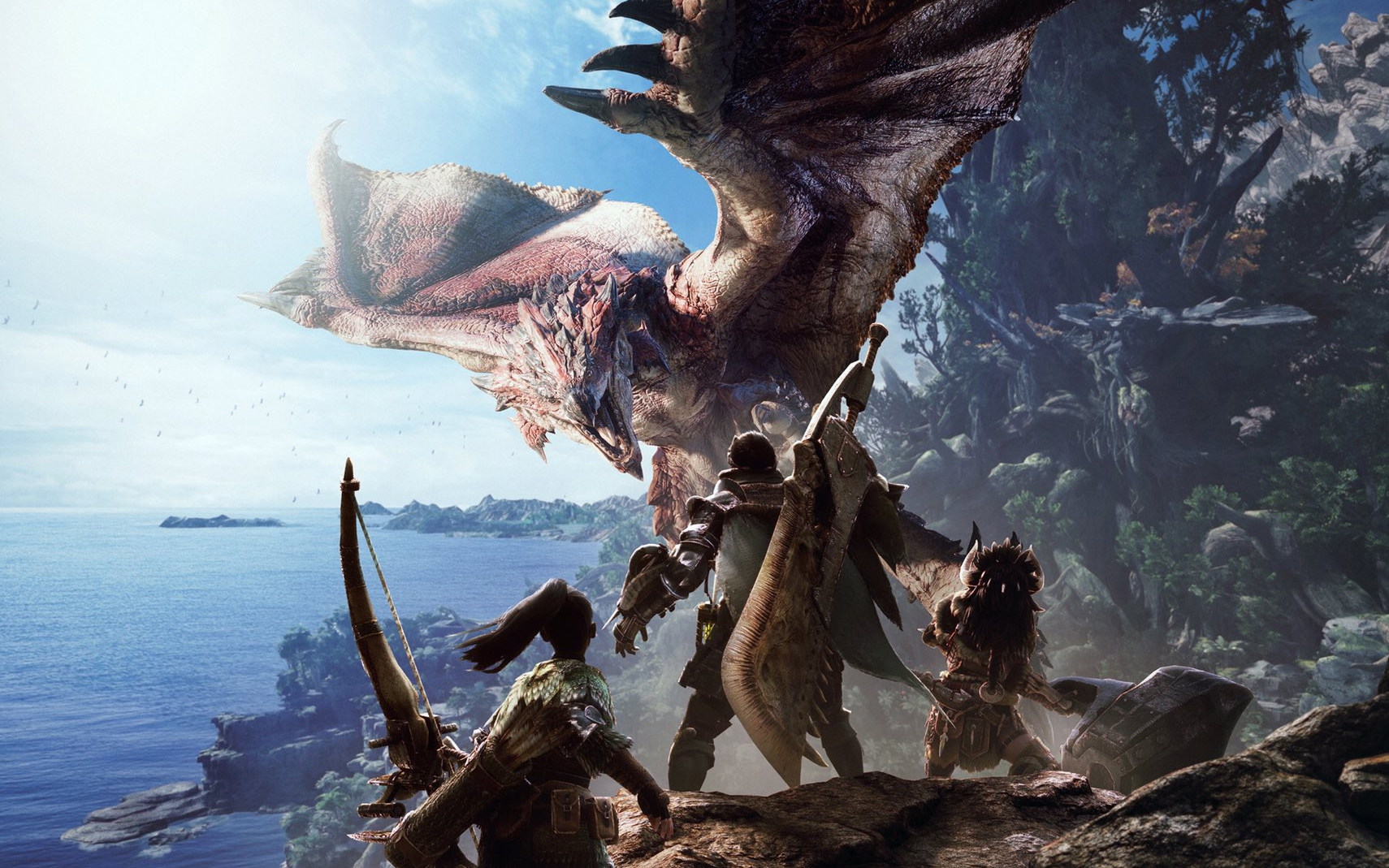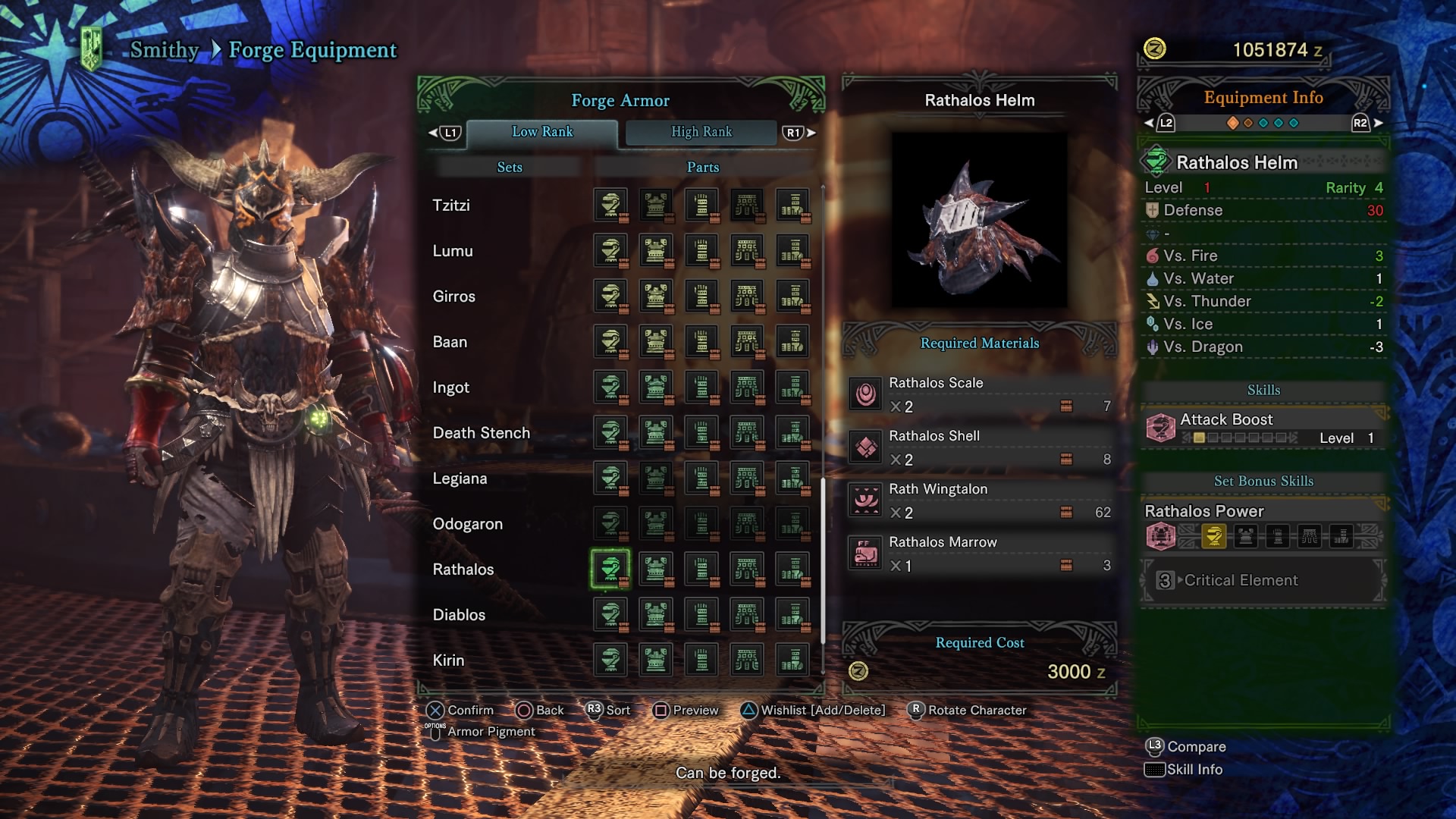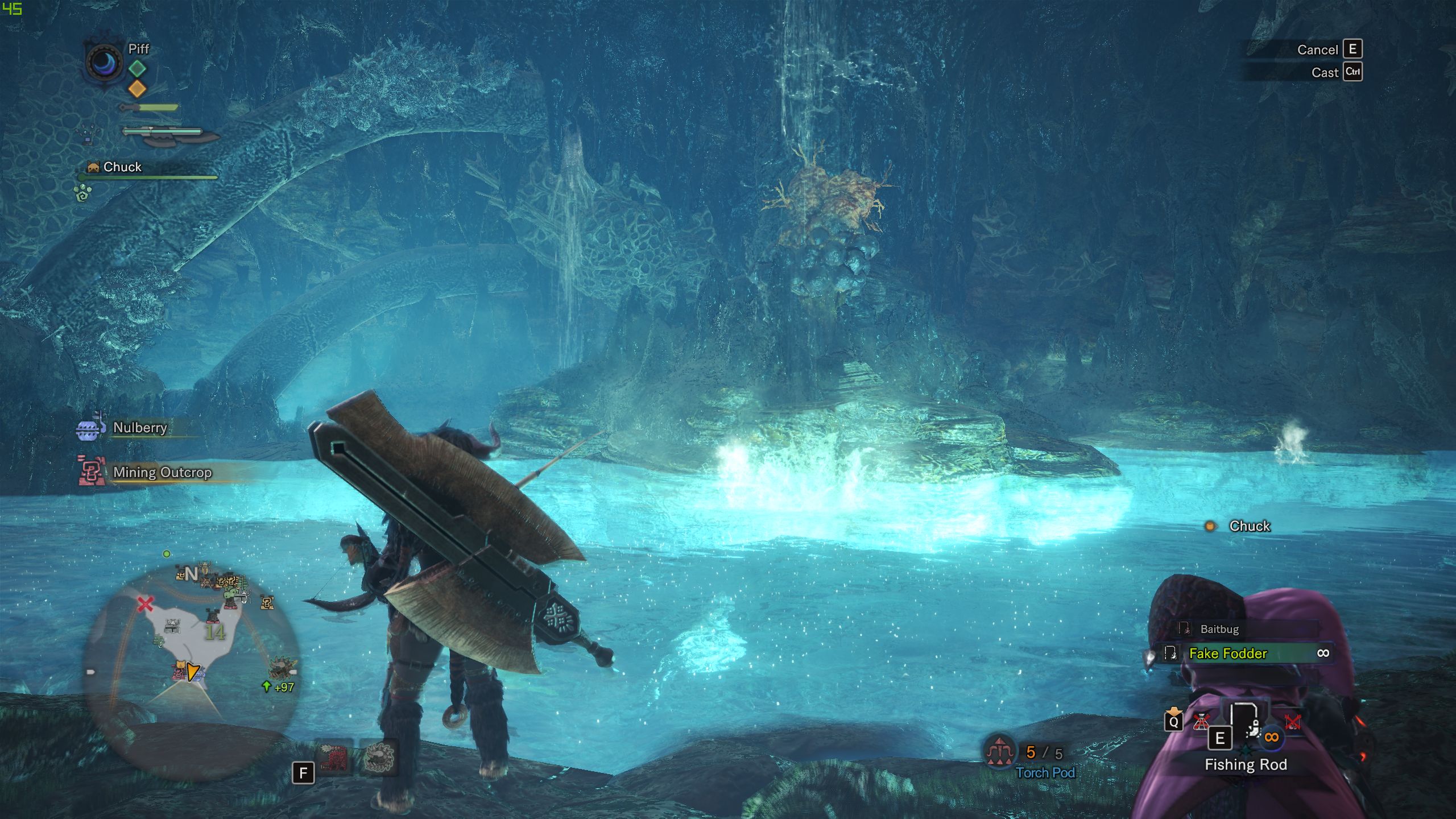How Monster Hunter: World makes grinding fun
A complex layering of rewarding systems keeps Monster Hunter feeling fresh fight after fight.

I might be in the minority here (at least when it comes to gaming), but I like grinding. There's a real satisfaction in slowly chipping away at an objective over a long time in pursuit of some big reward. And, when done right, grinding makes even small tasks feel like a meaningful step to some bigger goal. While it's often synonymous with smashing your head against a wall of repetitive chores for little reward, grinding doesn't have to be a bad thing and Monster Hunter: World proves it.
Capcom's alarmingly successful monster beat 'em up isn't out on PC for a few more days, but I've been digging into a pre-release copy and, despite loving so much about this new iteration of Monster Hunter, the thing I adore the most is how much control I have over the grind. While it's fundamentally being a game about farming resources and slaying the same monsters again and again, Monster Hunter: World finds smart ways to push back against the worst cliches of grinding.
Fine grinds
I love how Monster Hunter: World gives me tools to influence those odds, as grim as they may be at times, through skilled play.
Monster Hunter: World hides itself behind charming characters and wide-eyed adventure but I see it for what it truly is: A game where I beat the shit out of walking loot pinatas so I can craft items that let me beat more shit out of tougher loot pinatas. Despite all the cool new features World brings to the series, Monster Hunter hasn't changed in a decade.
But what I love about Monster Hunter's loot as opposed to, say, World of Warcraft or Destiny 2, is the fine balance that Monster Hunter strikes between random drops and deterministic ones. Similar to the latter games, I'll still throw my hands up in frustration and curse the RNG gods when that coveted Rathalos Plate doesn't drop from the Rathalos I just killed, but I love how Monster Hunter: World gives me tools to influence those odds, as grim as they may be at times, through skilled play.
One of the coolest features about its age-old combat system is that the damage I deal to monsters is localized to specific points on their body. If I hack at a Rathian's tail enough times with a sword, I'll sever it for a guaranteed Rathian tail that I can use in crafting. If I need a Tzitzi-Ya-Ku claw for a piece of armor I'm working on, my best bet is to chopping away at its limbs to break one off.
Each of these rewards is unique to the monster I'm hunting and might require wildly different strategies in combat. I'm definitely not chopping a monster tail off if I use the great hammer as a weapon, so I'll either need to get creative, invite a friend who uses a slashing weapon, or switch my playstyle. Either way, I have far more agency over the grind to obtain certain loot drops rather than just crossing my fingers and hoping for the best. And for particularly rare items, Monster Hunter: World has a bounty system with missions that guarantee drops of a certain rarity. Unlocking bounty missions isn't automatic, however. They too are a reward for completing certain feats while out in the field like breaking off a specific monster part a certain number of times.

That sprinkling of determinism on top of Monster Hunter's otherwise randomized rewards still leaves room for that inescapable frustration when that one item I needed to complete an armor set won't drop. But it also means that, with a little strategy and planning, I can gently turn those odds in my favor while also encouraging me to step out of my comfort zone by switching up strategies depending on the situation. It's a system that subtly rewards me for skillfully mastering combat rather than just brute-forcing my way through encounters.
The biggest gaming news, reviews and hardware deals
Keep up to date with the most important stories and the best deals, as picked by the PC Gamer team.
That in itself makes Monster Hunter feel like less of a grind because combat feels dynamic and varied enough to always be interesting. Instead of just mashing a series of hotkeys like I would in World of Warcraft, I'm constantly forced to think on my toes and react to whatever my prey throws at me. They might unexpectedly flee to a new area or a terrifying Anjanath might stomp by and decide to take a bite out of both of us. And with 14 weapons to choose from that each offer wildly different playstyles, I can freshen up a tired fight by learning a new weapon.
A helping hand
Though monster hunting is a big part of World, the other side of its coin is all the time I spend farming materials to aid in those hunts. Potions, antidotes, ammo—there are hundreds of items that need to be gathered from the environment and combined to even have a hope of surviving more brutal encounters. In older Monster Hunter games, that meant a lot of busywork as I jogged around the environment for hours at a time just scooping up honey, insects, and whatever else wasn't bolted down. It felt overly tedious.
Monster Hunter: World fixes this with a few smart features that other similarly grindy games need to pay attention to. World cuts down considerably on the time it takes to harvest these items, letting me snag a necessary herb as I zip by hot on the heels of my target. But what I really love is the passive systems that let me farm these common materials while I focus on more pressing (and interesting tasks).
Early Monster Hunter games introduced a farm that let me cultivate valuable crafting materials like mushrooms and insects instead of needing to waste time finding them during missions. But I also love that World adds the Tailraider Safaris, where you can send out sidekick felines on expeditions for various crafting goods and monster parts. It's been a feature in several Monster Hunter games that I wish other RPGs would borrow because, contrary to the saying, you don't have to do everything yourself if you want it done right.

This web of rewarding systems is the most intricate of any Monster Hunter to date. But it's also one of the most respectful of my time and energy.
World is the most accessible Monster Hunter Capcom has ever made, but it's also one of the friendliest grinds in gaming. It feels like the right amount of daunting—especially once you reach the more difficult High Rank quests and start needing much rarer materials. There's always something to work toward, but at the same time these passive farming systems ensure you're always making progress in other areas. Even if that coveted Rathalos Ruby continues to evade me, I'm still farming up less rare ingredients that'll be useful when I decide to craft new weapons or armors that I don't yet have. Hunts are more than pass-fail systems where I either get the item I want or I just wasted my time entirely—I'm always farming up useful materials even if the one I wanted didn't drop. Rarely am I stuck banging my head at a wall for hours for no gain.
The end result is that I'm happy to spend an evening chasing down one monster again and again and again—something I just can't say for most other games. Monster Hunter: World's dynamic environments mean fights rarely play out the same way twice. And each attempt I make always nets me useful resources that I need anyway, not to mention all the items I'm passively obtaining from my farms and the Tailraider Safaris. This web of rewarding systems is the most intricate of any Monster Hunter to date. But it's also one of the most respectful of my time and energy. Games like Destiny 2 and MMOs like World of Warcraft weaponize their grinds as a way to entice you to keep playing day after day, holding your enjoyment hostage behind time-gated events and arbitrary loot rules to stop you from binging yourself. But Monster Hunter doesn't care when your play and for how long. It still requires you to grind, but it gives you the tools to strategically tip the odds in your favor and keeps the experience feeling fresh. I wish other multiplayer grindfest RPGs would pay attention because Capcom has been quietly getting grinding right for years.
With over 7 years of experience with in-depth feature reporting, Steven's mission is to chronicle the fascinating ways that games intersect our lives. Whether it's colossal in-game wars in an MMO, or long-haul truckers who turn to games to protect them from the loneliness of the open road, Steven tries to unearth PC gaming's greatest untold stories. His love of PC gaming started extremely early. Without money to spend, he spent an entire day watching the progress bar on a 25mb download of the Heroes of Might and Magic 2 demo that he then played for at least a hundred hours. It was a good demo.


